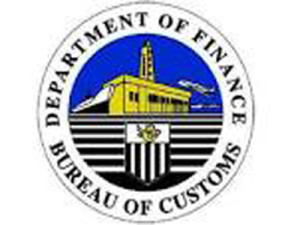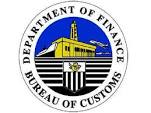 TWENTY SEVEN district and deputy collectors of the Philippine Bureau of Customs (BOC) have been transferred to the Customs Policy Research Office (CPRO), a newly created think tank under the Department of Finance (DOF), in a move widely seen as banishing the officials to the “freezer”.
TWENTY SEVEN district and deputy collectors of the Philippine Bureau of Customs (BOC) have been transferred to the Customs Policy Research Office (CPRO), a newly created think tank under the Department of Finance (DOF), in a move widely seen as banishing the officials to the “freezer”.
The development is part of efforts to shake up the customs bureaucracy after the entire organization was castigated by President Benigno Aquino in his last State of the Nation Address (SONA) for its inability to stop rampant smuggling.
Under Customs Personnel Order No. B-189-2013 dated Sept. 17 and signed by Finance Secretary Cesar Purisima and Customs commissioner Rozzano Rufino Biazon, the district collectors, all with plantilla positions of Collector V and VI, were instructed to move to the CPRO.
The order took effect immediately.
Vacancies left by the port collectors’ extraction from their old posts will be filled by their second-in-command in the mean time that the DOF is still looking at the credentials of possible replacements.
Affected by the order include the so-called three kings of the BOC revenue districts Ricardo Belmonte, formerly collector at the Manila International Container Port; Rogel Gatchalian, Port of Manila; and Carlos So, Ninoy Aquino International Airport; along with Fidel Villanueva IV, Port of San Fernando; Tomas Alcid, Port of Batangas; Edward dela Cuesta, Port of Cebu; Nelson Belen, Port of Tacloban; Oswaldo Geli, Port of Surigao; Ma. Lourdes Mangaoang, Port of Cagayan de Oro; Darwisha Schuck, Port of Zamboanga; Eduard James Dybuco, Port of Davao; Adelina Molina, Port of Subic; Ronnie Silvestre, Clark International Airport; Leilani Alameda, Port of Aparri; Elvira Cruz, Port of Limay; and Leovigildo Dayoja, Port of Legazpi.
A PortCalls source said the collectors will be asked to come up with “policy papers” at the CPRO. The transfer is seen as clipping the officials’ powers and influence at the same time addressing the public’s clamor for change at the corruption-ridden bureau, the source added.
A few other reform measures have since been implemented after the President’s SONA and included the endorsement of five new deputy commissioners — all expected to be formally appointed by President Aquino within the week. They are former Armed Forces of the Philippines chief Jessie Dellosa (incoming deputy commissioner for Enforcement and Intelligence); Atty Agaton Teodoro Uvero (Assessment and Operations Coordinating Group); Editha Tan (Revenue Collection and Monitoring Group); Myrna Chua (Administration); and Primo Aguas (Management Information System and Technology Group).
Purisima also ordered all BOC personnel to return to their mother units for proper accounting of all bureau personnel. This resulted in chaos at the BOC in the last few weeks, with some divisions left with no personnel.
CPRO is seen by some sectors as some sort of freezer for the high-profile collectors. The main unit’s main function is to identify and evaluate internally accepted customs administration practices and processes, according to guidelines set out by Executive Order 140 issued by the Office of the President two weeks ago.
As members of the think tank, the former port collectors will aid CPRO in its role of helping maximize the BOC’s revenue collections and build the agency’s integrity while ensuring harmonization and simplification procedures.
EO 139 states that the CPRO would ensure proper collection, monitoring and storage of data, documents and records that should be readily available upon demand. It must also promote the seamless flow of goods while protecting local industries, the order stipulated.
The transferred customs officials will also help draft the customs reform bill and modernize the systems and policies of the BOC, a key function of the CPRO as mandated by Malacañang.
The CPRO was formed along with the Office of the Revenue Agency Modernization, under Executive Order 139, which will be in charge of formulating and implementing improvements in the processes, systems and procedures of the revenue-generating agencies to bring these up to global standards.
In forming the two units, Malacañang cited section 74 of Republic Act 10352, or the General Appropriations Act of 2013, which states that the President may authorize organizational and staffing pattern changes in any department, bureau and office in the executive branch.





